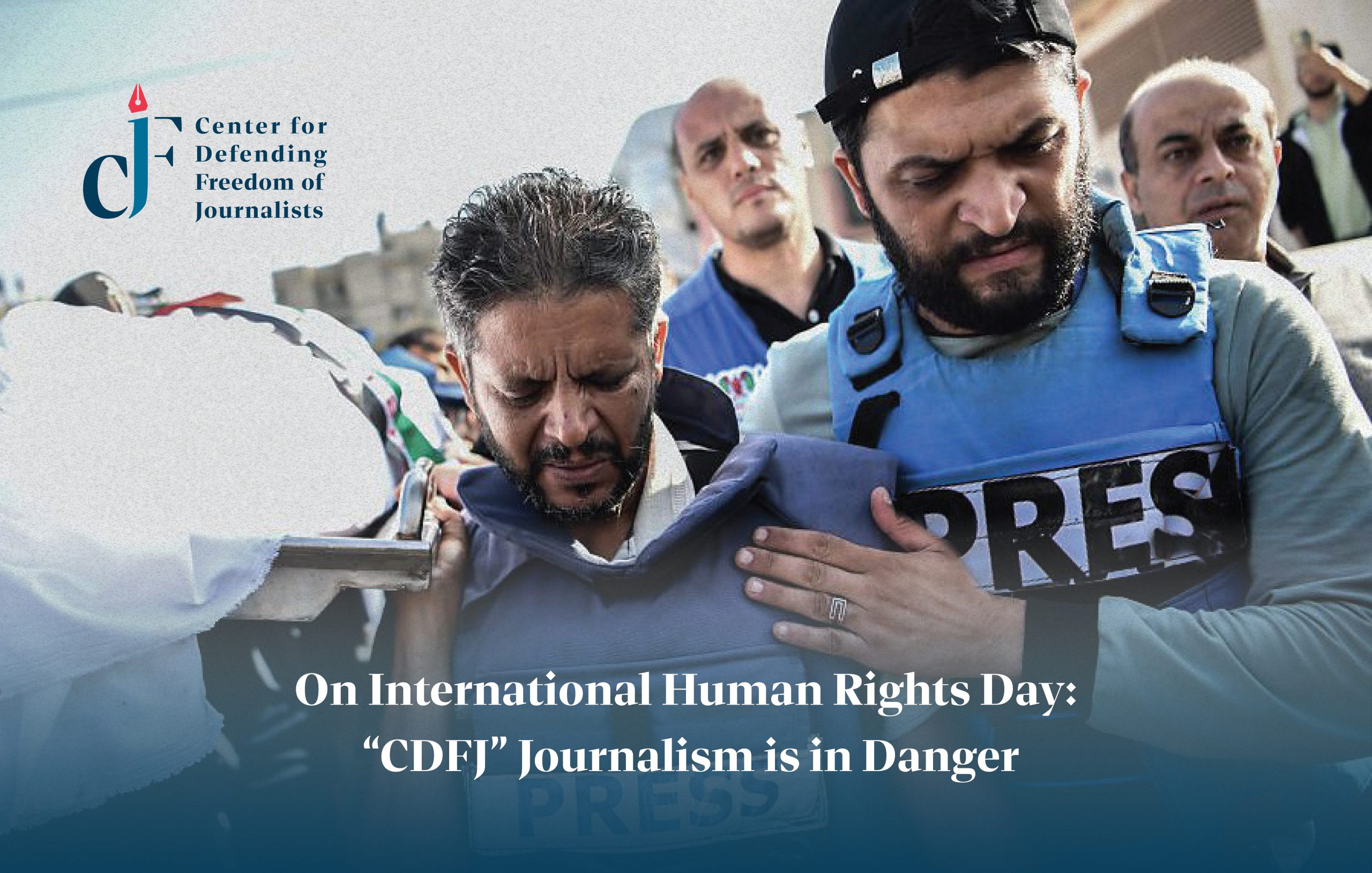
On the Human Rights Day 2024, under the theme “Our Rights, Our Future, Now,” Center for Defending Freedom of Journalists (CDFJ) called for immediate international action to halt the massacre in Gaza, hold Israeli occupation war criminals accountable for their crimes, and prevent their impunity.
CDFJ stressed that the international community has failed in the test of protecting human rights, highlighting that over a year of the genocide waged by the Israeli occupation against Gaza has exposed double standards, selective application of human rights principles, and prioritization of interests over values.
CDFJ stated that civil society organizations are enduring terrible circumstances, as the United Nations remains a bystander to the war crimes being committed in Gaza in plain sight. It asked, “Who can trust the human rights system now? How can the public believe that human rights laws were enacted to protect them, that treaties and conventions were designed to defend them, and that their application is not governed by double standards?”
CDFJ noted that the world’s silence on the genocide in Gaza, alongside the complicity and support of some countries to the Israeli aggression, has encouraged many states to abandon their human rights commitments, reinforcing the belief that human rights violations can occur without accountability or punishment.
CDFJ revealed that 2024 has been the worst year in history for journalists, with Israel killing over 190 journalists in Gaza, injuring 362 others, and destroying 88 media institutions in the Gaza Strip.
CDFJ warned that Arab media face numerous challenges, most notably the shrinking space for freedoms, continued restrictions on journalistic work and independence, financial resource drying up, and persistent efforts to control media through various methods.
CDFJ reported that severe violations remain prevalent in some countries, including imprisonment, detention, and physical assaults, in addition to widespread non-physical violations such as prior censorship, withholding information, and preventing media coverage.
CDFJ added that professional journalism faces additional challenges beyond targeting by executive authorities, including the shift of audiences to social media platforms, declining professional standards, and the spread of disinformation and fake news.
CDFJ called on countries worldwide to unite to protect journalism, which is under threat because it contributes to conveying truth, disseminating knowledge, supporting political participation, defending democracy, and upholding human rights.
In conclusion, CDFJ emphasized in its statement on International Human Rights Day: “Despite all the human rights violations committed globally and the disregard by many governments for human rights principles, defenders of human rights must hold firmly to these values and continue advocating for them. Human rights will always remain a national, global, and humanitarian necessity.”

